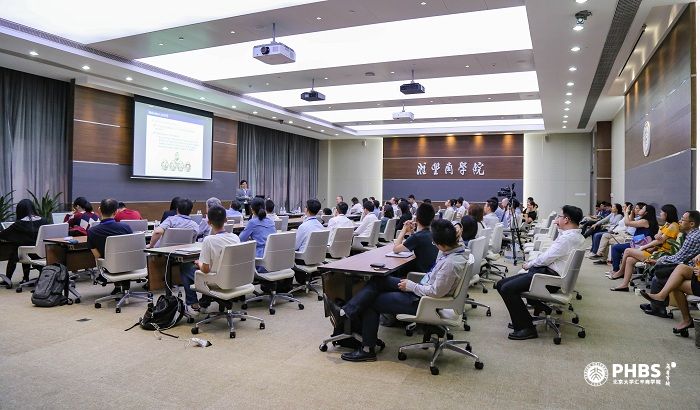The rise of quantitative finance and economics in securities, banking and regulatory departments has drew much attention from both academia and industry. In this context, Peking University HSBC Business School (PHBS), the Risk Management Institute (RMI) of the National University of Singapore (NUS), and Key Laboratory of Mathematical Economics and Quantitative Finance (Peking University), held the fourth Annual PKU-NUS International Conference on Quantitative Finance and Economics at PHBS on May 11 and 12.
It provided a platform for researchers and practitioners to enhance their quantitative finance techniques, discuss new methods and present latest findings. The conference consisted of one keynote speech, two plenary talks and five sessions. Those sessions featured more than 46 new research papers including such topics as financial modeling, algorithmic trading, computational finance, governance, credit risk, macroeconomics, and monetary economics.
 Thomas Sargent gives the keynote speech
Thomas Sargent gives the keynote speech
Thomas Sargent, the Nobel Laureate in economics, explained why people cared so much about uncertainty and discussed the way to measure uncertainty by introducing the concept “entropy”, a numerical measure of the uncertainty of an outcome. He pointed that the size of decision maker’s statistical models are measured by relative entropy. He also explained the relationship between uncertainty aversion and risk aversion, and exemplified how uncertainty affects design of good government policies.
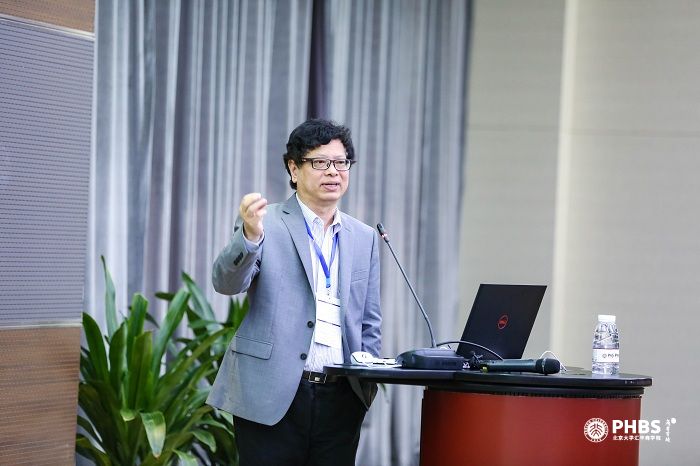 Professor Hong shares his insights on model uncertainty
Professor Hong shares his insights on model uncertainty
Yongmiao Hong, professor of Economics at Cornell University, gave a plenary talk on model instability and uncertainty. Compared to traditional model selection methods, he pointed out model averaging could greatly reduce prediction mistakes. Empirical studies show that the new model averaging method proposed by him has turned out to be effective in prediction.
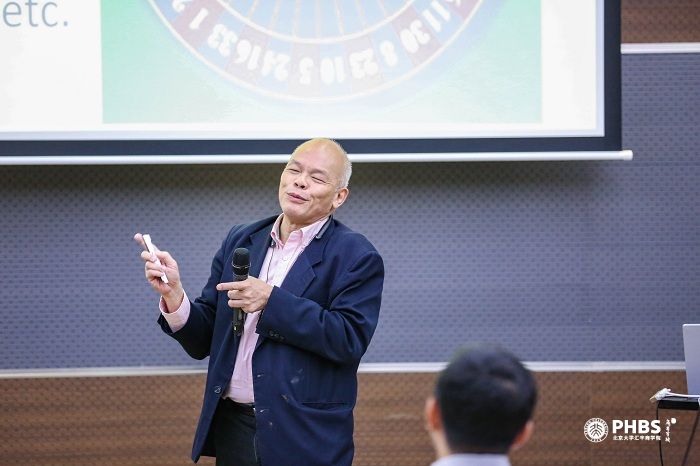 Professor Chew gives a plenary talk
Professor Chew gives a plenary talk
Soohong Chew, professor at NUS and the Southwestern University of Finance and Economics, discussed relevant academic achievements from an interdisciplinary perspective of mathematical theories, experimental studies and genetics. He explored causes of psychological anxiety from the perspective of biogenetics, and described physiological factors such as γ-aminobutyric acid (GABA), amygdala (almond), allele, and genotype.
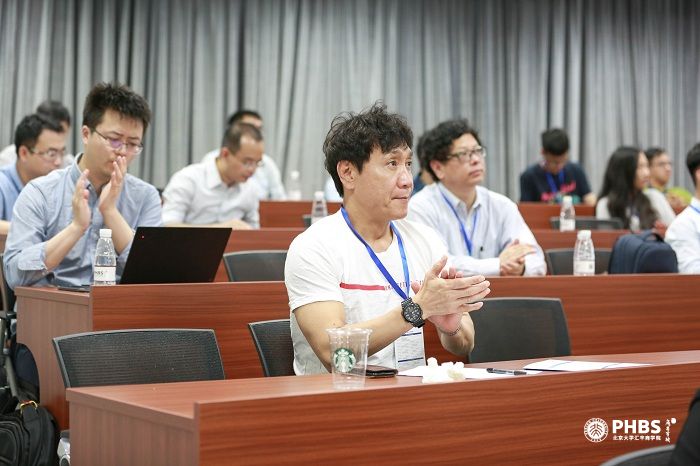 Participants listen to presentations
Participants listen to presentations
In microeconomics session, Professor Di Gong from University of International Business and Economics examined how uncertainty shapes banks’ loan contracts and tests prediction of uncertainty premium that increases in the level of uncertainty. While Professor Jiawen Luo, from South China University of Technology, used the high frequency data from China’s stock markets to forecast the realized volatility. He pointed out that an accurate forecast of covariance matrices of financial markets is crucial to asset pricing, portfolio selection and risk management.
In the field of financial modeling, PhD student Weiming Zhang gave evidence from mispricing and institutional trading. His employed an example in family relations to explain the investors’ preference on decision making, as his research proved that preference for social performance affected investment decisions. Professor Hyeng Keun Koo from Ajou University introduced a household’s consumption and portfolio selection model with time-varying borrowing constraints and investment opportunities.
In the context of corporate bonds, the common practice in emerging markets is to have a local government guarantee bond issuance to help firms raise capital. PhD student Yinghui Chen from Zhongnan University of Economics and Law argued that as it is common for a government to use subsidies to guide the economic activities as part of macroeconomic policy in emerging markets, the research showed that government involvement in the bond market reduced the corporate bond yield spread.
With the accelerated development of Fintech and machine learning, scholars have gradually expanded their studies by applying frontier techniques in these fields to examine financial practices. Professor Yongzeng Lai from Wilfrid Laurier University explained the machine learning and its applications in finance and how to select portfolio by deep learning.
Several PHBS professors presented papers that explore such territory using market data to look into the impact of exchange rate, policy uncertainty, option pricing and other factors on firms' performance and investment.

PHBS Professor Shi presents her research on exchange rate regime
PHBS Professor Jiao Shi presented her research on “Exchange Rate Regime with Vertical Integration in Production” in which she argued that firm relocation causes welfare loss over the business cycle under nominal shocks. She also probed into relations among uncertainty, compound risk and almost-objective uncertainty.
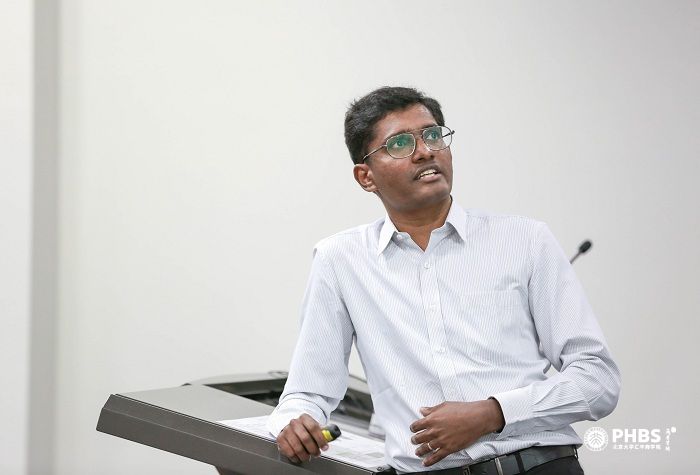
PHBS Professor Selvam talks about investment decisions
PHBS Professor Srinivasan Selvam held that optimal capital ratio requirement is quantitatively sensitive to the presence of bond financing, and managers could learn from stock prices to take better informed investment decisions.
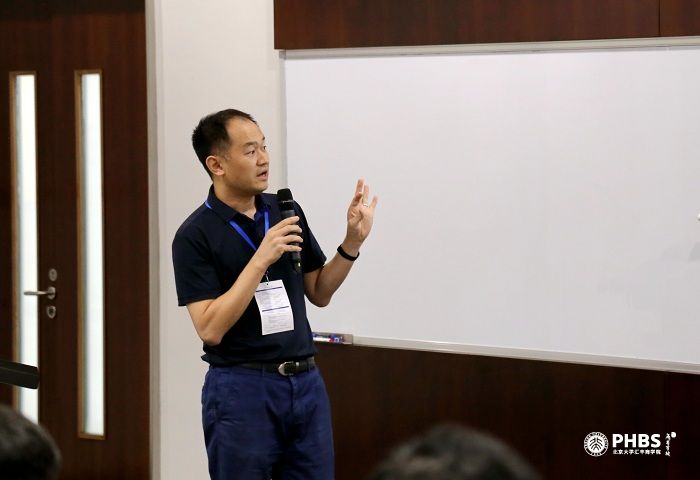
PHBS Professor Jaehyuk Choi talks about quantitative methods

PHBS Professor Xianhua Peng presents his reserach
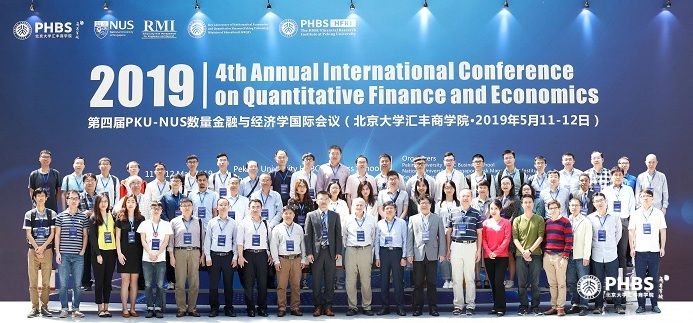
Group photo of the participants
By Annie Jin, Yifeng Luo
Edited by Priscilla Young





